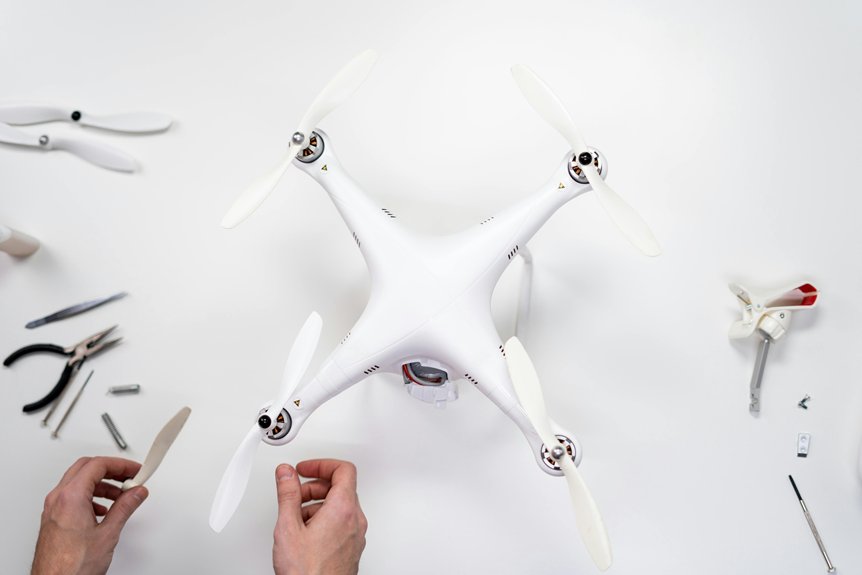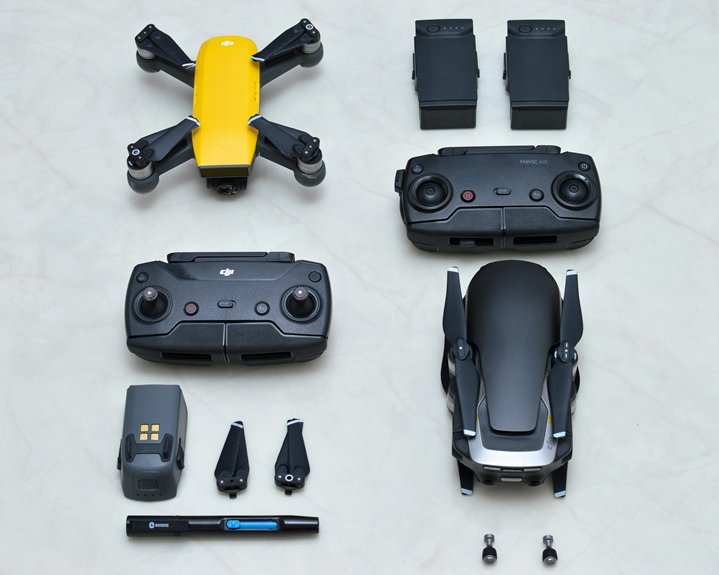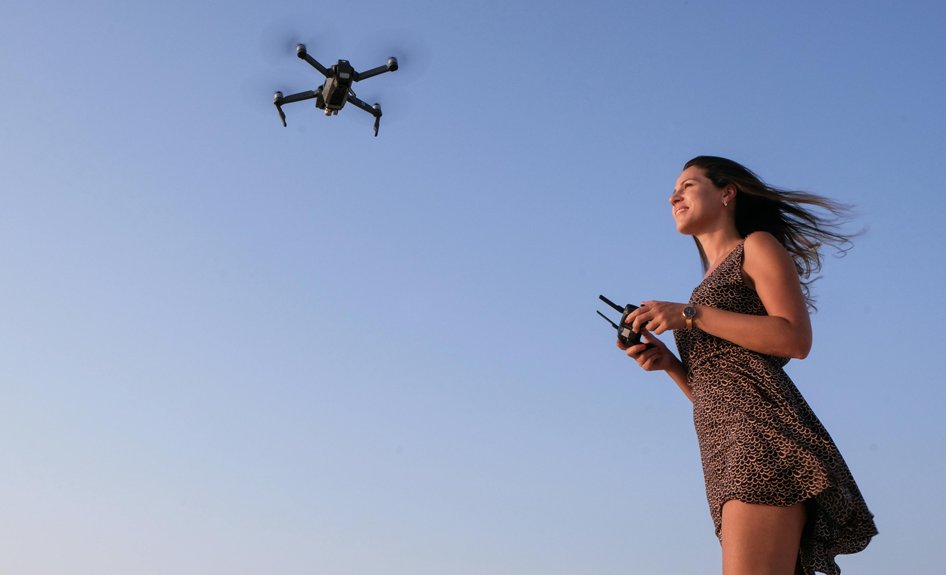As a new drone pilot, you might think you're ready to take to the skies, but common mistakes can quickly turn your excitement into trouble. Overlooking local regulations and skipping pre-flight checks can lead to serious consequences. You may also underestimate how weather affects your flight. Want to know more about how to avoid these pitfalls and ensure a safe flying experience? Let's explore the key mistakes that could put your drone journey at risk.
Overlooking Local Regulations and No-Fly Zones
When you take to the skies with your drone, don't overlook the importance of local regulations and no-fly zones. Ignoring these rules can lead to hefty fines and even confiscation of your equipment.
Before you fly, familiarize yourself with the laws specific to your area. Check airspace restrictions, which often include airports, military bases, and crowded public spaces.
Utilize apps or websites designed to inform drone pilots about current regulations and no-fly zones. It's crucial to respect privacy laws, too; flying over private property without permission can lead to legal trouble.
Ignoring Pre-Flight Checks and Maintenance
Before you take off, it's vital to conduct thorough pre-flight checks and maintenance on your drone. Skipping this step can lead to malfunctions or crashes, jeopardizing your investment and safety.
Start by inspecting the battery—make sure it's fully charged and securely connected. Check the propellers for any signs of wear or damage; even a small crack can cause a failure.
Ensure the camera and gimbal are functioning properly, and calibrate your drone if necessary. Don't forget to verify that your firmware is up to date.
Taking just a few minutes for these checks can save you from costly repairs or accidents. Remember, a well-maintained drone ensures a smoother, safer flight experience.
Underestimating Weather Conditions
Skipping pre-flight checks can lead to unexpected issues, but overlooking weather conditions is just as risky.
As a new drone pilot, you might be tempted to fly in less-than-ideal weather, thinking it won't affect your performance. However, wind, rain, and temperature can significantly impact your drone's stability and battery life.
Strong winds can make it difficult to control your drone, while rain can damage your equipment. Always check local forecasts and consider conditions like visibility and precipitation before you fly.
Failing to Practice Flight Controls and Maneuvering Techniques
Many new drone pilots underestimate the importance of practicing flight controls and maneuvering techniques. You might feel confident after a few flights, but without proper practice, you risk losing control when it matters most.
Spend time familiarizing yourself with the controls, learning how your drone responds to different inputs. Start with basic maneuvers—takeoffs, landings, and turns—before progressing to more complex movements.
Consistent practice helps you build muscle memory, making it easier to react quickly in unexpected situations. Additionally, consider using a simulator to enhance your skills without the risk of crashing.
Conclusion
As a new drone pilot, avoiding these common mistakes is crucial for your safety and the safety of those around you. Always stay informed about local regulations and no-fly zones, conduct thorough pre-flight checks, pay attention to weather conditions, and practice your flight skills regularly. By prioritizing these aspects, you'll not only enhance your flying experience but also build confidence and ensure responsible drone operation. Keep learning and flying safely!



